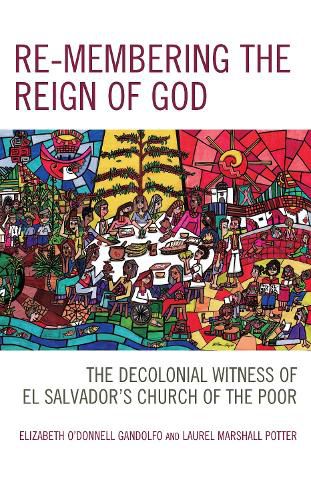Readings Newsletter
Become a Readings Member to make your shopping experience even easier.
Sign in or sign up for free!
You’re not far away from qualifying for FREE standard shipping within Australia
You’ve qualified for FREE standard shipping within Australia
The cart is loading…






What does it mean for an historically colonial church to become the church of the poor in a world marked by pervasive and persistent coloniality? Re-membering the Reign of God addresses this question through historical and theological reflection on the evolution of El Salvador’s ecclesial base communities as decolonial protagonists of the church of the poor in their own particular context of coloniality and prophetic hope. In the first part of the book, the authors present sacred narratives of ‘Salvadoran Salvation History,’ including histories, songs, and testimonies of ecclesial base communities themselves. In the second part of the book, the authors reflect theologically on these narratives, arguing that these communities embody a decolonial sacrament of the reign of God in and through their ecclesial, social, and cultural reclamation of knowledge, being, and power in the church and the world. These communities therefore represent a particularly rich locus for decolonizing theology and challenging the church in the Global North to join the church of the poor in its prophetic praxis of decolonial solidarity.
$9.00 standard shipping within Australia
FREE standard shipping within Australia for orders over $100.00
Express & International shipping calculated at checkout
What does it mean for an historically colonial church to become the church of the poor in a world marked by pervasive and persistent coloniality? Re-membering the Reign of God addresses this question through historical and theological reflection on the evolution of El Salvador’s ecclesial base communities as decolonial protagonists of the church of the poor in their own particular context of coloniality and prophetic hope. In the first part of the book, the authors present sacred narratives of ‘Salvadoran Salvation History,’ including histories, songs, and testimonies of ecclesial base communities themselves. In the second part of the book, the authors reflect theologically on these narratives, arguing that these communities embody a decolonial sacrament of the reign of God in and through their ecclesial, social, and cultural reclamation of knowledge, being, and power in the church and the world. These communities therefore represent a particularly rich locus for decolonizing theology and challenging the church in the Global North to join the church of the poor in its prophetic praxis of decolonial solidarity.